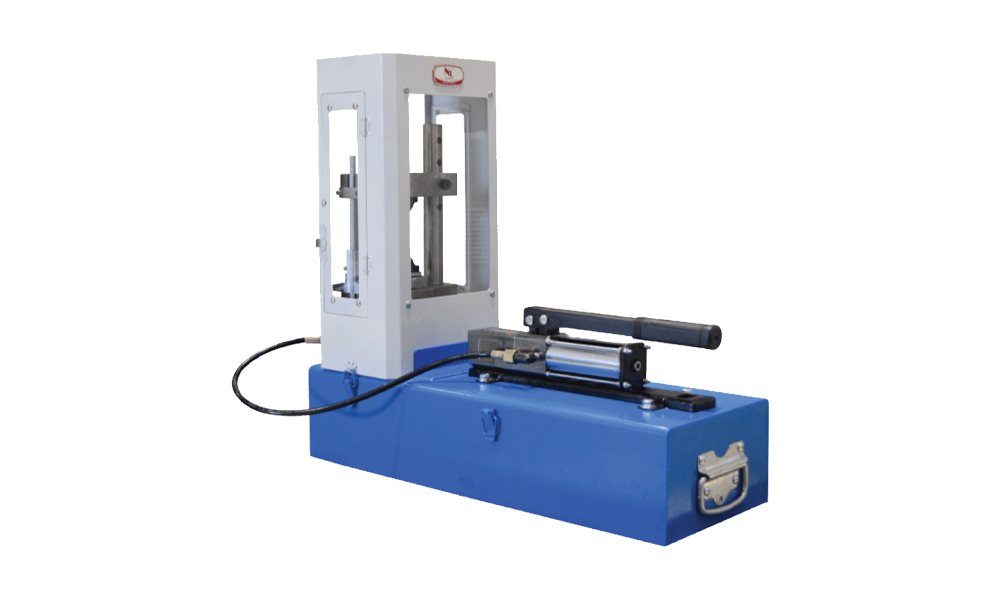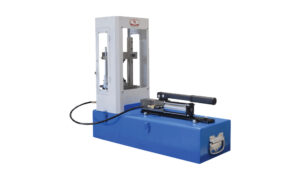Measurements of the applied force and specimen dimensions are taken to derive the point load strength index (Is(50)). This index serves as a dependable indicator of the specimen’s equivalent uniaxial compressive strength. Engineers and geologists rely on this data for efficient and precise geological characterization and engineering design decisions, enhancing the effectiveness of various projects such as construction, mining, and infrastructure development.
Features and Benefits
Introducing our advanced Point Load Tester:
- Compact, yet durable aluminium construction ensures portability and longevity.
- Robust carry case provided for convenient transportation.
- Direct load measurement available in kilonewtons or pounds force for precise data acquisition.
- Adjustable platen separation scale enhances testing versatility.
- Hardened stainless steel ball embedded in platen points ensures a true 5mm point radius, guaranteeing accuracy.
- Operator safety screen included for enhanced safety during operation.
- Hold down holes in the base plate allow secure fixation to benches or anchor plates.
- Open design facilitates effortless cleaning of the instrument, ensuring maintenance efficiency.
- Microprocessor control delivers superior load measurements with exceptional precision.
- Remarkable 15 hours battery life with auto-power-off feature for uninterrupted operation.
- Automatic zero setting minimizes setup time, maximizing testing efficiency.
Technical Specifications
| Model Number: | NL 1012 X / 008 |
| Max. Capacity: | 50 kN x 0.01 kN Sensitivity |
| Max. Specimen Test: | 110 mm Dia. |
| Power: | 1.8 Ah Rechargeable with AC 220 V |
| Result Storage: | 999 Test Results |
| Accuracy & Repeatability: | ≤1.0 % F.S |
| Case Dimension (mm): | 280(L) x 220(W) x 680(H) mm |
| Approx. Weight: | 40 kg |
Standard Compliance
ASTM D5731 – “Standard Test Method for Determination of the Point Load Strength Index of Rock and Application to Rock Strength Classifications,” outlines a precise procedure for assessing the point load strength index of rock specimens, which is a fundamental measure of their strength under concentrated loading conditions. The index obtained through this method serves as a pivotal parameter for classifying rocks based on their mechanical properties. Geotechnical engineers and professionals in rock mechanics rely on ASTM D5731 to evaluate the strength characteristics of rock materials accurately. This standard plays a vital role in engineering applications such as foundation design, slope stability analysis, and tunneling, providing essential guidelines for assessing and classifying rock strength.




